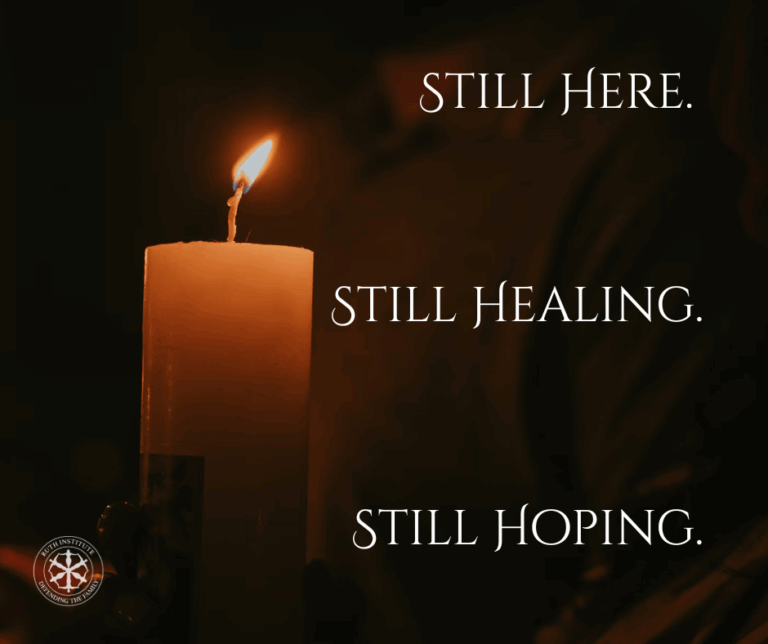By Tyler O’Neil
This article was first published September 5, 2017, at PJMedia.

Last week, the Southern Poverty Law Center (SPLC) seemed to claim another scalp. On Thursday, the credit card processing company Vanco Payment
Solutions dropped the Christian nonprofit Ruth Institute (RI) over claims that RI “promotes hate, violence, harassment and/or abuse.” The group
has been listed on the SPLC’s “hate map”since
2013.
“The Ruth Institute’s primary focus is on family breakdown, and its impact on children. If this makes us a ‘hate group,’ so be it,” the RI’s founder
and president, Jennifer Roback Morse, declared in a statement.
Vanco sent the Ruth Institute a letter Thursday, declaring that it was canceling their service immediately. “Vanco has elected to discontinue our
processing relationship with The Ruth Institute,” the letter read. “The organization has been flagged by Card Brands as being affiliated with
a product/service that promotes hate, violence, harassment and/or abuse. Merchants that display such attributes are against Vanco and Wells
Fargo processing policies.”
In a statement to PJ Media, Vanco confirmed that “we terminated our processing relationship with the Ruth Institute on Thursday, August 31.” A Vanco
spokesperson would neither confirm nor deny whether or not the company’s conclusion that RI “promotes hate” was inspired by the SPLC’s “hate map.”
Morse reported that “no one from Vanco, Card Brands, or Wells Fargo ever contacted the Ruth Institute to inquire about how we ‘promote hate, violence,
harassment and/or abuse.'”
The Vanco statement did not explicitly link its reasoning with the SPLC “hate map,” but the Ruth Institute has been listed on this map since 2013,
Morse noted. “To the best of our knowledge, no one has ever been inspired to riot or shoot anyone by our activities,” the RI president said.
This stands in marked contrast to the SPLC, which has been linked to two domestic terror attacks.
In the summer of 2012, Floyd Lee Corkins III broke into the Family Research Council (FRC), a Christian nonprofit in Washington, D.C., that the SPLC’s
“hate map” lists with RI as an “anti-LGBT hate group.” Corkins aimed to murder everyone in the building, and he later pled guilty to committing an act of terrorism. He was sentenced to 25 years in prison.
During an FBI interrogation, he said he targeted the FRC because of the SPLC “hate map.”
This past summer, Bernie Sanders supporter James Hodgkinson shot people at a Republican Congressional Baseball Game practice, nearly killing Rep.
Steve Scalise (R-La.). Hodgkinson “liked” the SPLC on Facebook.
Furthermore, the SPLC had repeatedly attacked
Scalise for a speech he gave to a white supremacist group in 2002. The SPLC attacked him for it even after he apologized and was called a “sellout” by white supremacists.
Such carelessness has emerged again and again throughout the SPLC’s history. In 2014, the group placed retired neurosurgeon Ben Carson on its “Extremist Watch List.” Just last week, the group removed the innocent historic town of Amana Colonies from
its “hate map.” While the SPLC eventually removed Amana Colonies, it first defended the “hate” label because a white supremacist website claimed to have had a book club in one of the town’s restaurants.
In a series of three videos, the anti-Islamist group Quilliam International revealed the SPLC’s ever-changing reasons for
listing Muslim Maajid Nawaz as an “anti-Muslim extremist.” One of the reasons the SPLC gave for targeting Nawaz? His visit to a strip club
for his bachelor party.
Along these lines, the Ruth Institute compiled all the items that some groups have found objectionable on a page called “Where’s the Hate?”
Morse suggested that Americans check out this material for themselves, before deciding that the Ruth Institute is a “hate group.”
The SPLC was originally founded to fight white supremacist groups like the Ku Klux Klan (KKK) in court. In recent decades, however, it expanded
its legitimate list of racist hate groups to include mainstream conservative groups which which it disagrees.
Morse argued that the SPLC hate map places RI “right next to the guys with white hoods and swastikas,” in order to silence debate on the sexual
revolution.
“If you go around saying that kids don’t really need their parents and adults can make any sexual choice that they want and it will all be good
because we will contracept away all the problems on one hand or abort away the problems, or the kids will be so resilient that it will all
be fine, that’s completely irrational. It’s completely crazy,” Morse told the Christian Post.
In fact, the SPLC’s former spokesman, Mark Potok explained that the group’s primary goal is to destroy its political opponents. “Our aim in life
is to destroy these groups, completely destroy them,” he said. He later added that the SPLC’s criteria for what makes an organization a “hate
group” are “strictly ideological.”
In addition to RI and the FRC, the SPLC’s “hate group” list includes Christian organizations like D. James Kennedy Ministries,
Liberty Counsel,
the American Family Association (AFA), and Alliance Defending Freedom (ADF),
along with other groups like the American College of Pediatricians and the Center for Immigration Studies. It also lists Muslim reformer
Maajid Nawaz and women’s rights activist Ayaan Hirsi Ali as “anti-Muslim extremists.”
Despite the group’s shaky track record and history of terror connections, it has been raking in cash after the riots in Charlottesville, Va.
George Clooney and his wife Amal pledged $1 million to the group, and the company J.P.Morgan pledged $500,000.
Apple CEO Tim Cook was even more generous,
announcing his company would give $1 million to the SPLC and that it would set up a system in iTunes software to let consumers directly
donate to the organization.
Other companies like Lyft and
MGM Resorts have also partnered with the SPLC, and many companies have matched their employees’ contributions to the group, including big
names such as Disney, Kraft Heinz, Shell, and Verizon. Pfizer, Bank of America, and Newman’s Own have each given the organization at least
$8,900 in the past few years.
The SPLC does not need this money, however. The Washington Free Beacon recently reported that the group sent multiple transactions to foreign entities,
including two cash payments of $2.2 million into funds in the Cayman Islands. The SPLC takes in $50 million in contributions each year, and
had $328 million in net assets as of 2015.
Recent support has not been limited to monetary assistance, however. CNN broadcast the SPLC’s “hate map”on
its website and Twitter account this month (with the FRC still marked on the map). Two other major media outlets, ABC and NBC, parroted the SPLC’s “hate group” label against ADF last month.
917. That’s the number of hate groups operating in the US, according to data from the Southern Poverty Law Center http://cnn.it/2wSuoSN
In June, the charity navigation website GuideStar adopted the SPLC “hate group” list,
marking each profile of the targeted organizations as a “hate group.” This action inspired the first of three lawsuits against the SPLC, launched
by the Christian nonprofit Liberty Counsel.
Maajid Nawaz followed up with his own lawsuit soon after, and D. James Kennedy Ministries has been the most recent group to sue the SPLC for defamation.
While Morse vehemently protested having her organization unceremoniously blacklisted, she defended Vanco’s right to make such a decision.
“Vanco, Card Brands, and Wells Fargo are private businesses. The Ruth Institute respects their right to conduct their businesses as they see fit,”
Morse said. Chillingly, she added, “We just wish wedding photographers, bakers, and florists received the same respect.”
Morse referred to photographers, bakers, and florists because such professionals have been penalized for refusing to take part in same-sex weddings.
These people did not discriminate against LGBT people, but rather opted out of serving a particular event. Even so, they have been fined and
ridiculed.
Such cases include Washington state florist Barronelle Stutzman,
Oregon bakers Aaron and Melissa Klein, Michigan farmers Steve and Bridget Tennes,
Colorado baker Jack Philips (whose case will come before the Supreme Court), and many others. An LGBT megadonor has declared his intention
to “punish the wicked,”
by continuing to penalize such actions.
While Morse defended these companies’ right to cut off business with her, she did take a different kind of offensive line against them.
“The Vanco company markets itself to religious organizations,” the RI president noted. “We surmise that Vanco dropped us because we hold views
about marriage, family and human sexuality that are considered ‘Anti-LGBT.'”
Although groups like the SPLC may brand such ideas as “hateful,” Morse noted, “Our beliefs are the common heritage of all Christian groups.
Christian organizations that utilize Vanco’s services may wish to reconsider.”
The Ruth Institute president was not calling for a boycott per se, but rather a concerted effort on behalf of Christian nonprofits to shame
Vanco into reversing its decision. This is exactly the same kind of campaign the SPLC is waging against such groups, but RI decided not
to brand Vanco a “hate group.” Instead, Morse called on other Christian groups to reconsider working with the company.
Finally, Morse reiterated that the Ruth Institute will still accept donations the old-fashioned way. “Donors to the Ruth Institute can rest
assured that their private information has not been compromised,” the president said. “Supporters can send checks to our main office, 4845
Lake St.; #217; Lake Charles, LA 70605.”
With Apple, J.P. Morgan, George Clooney, CNN, and all sorts of groups teaming up with the SPLC to wage a campaign against nonprofits like the
Ruth Institute, Morse’s organization needs all the help it can get.


 CNN✔@CNN
CNN✔@CNN

